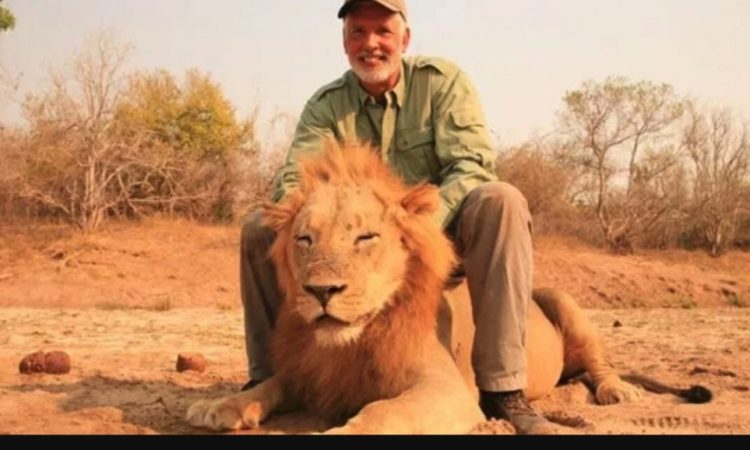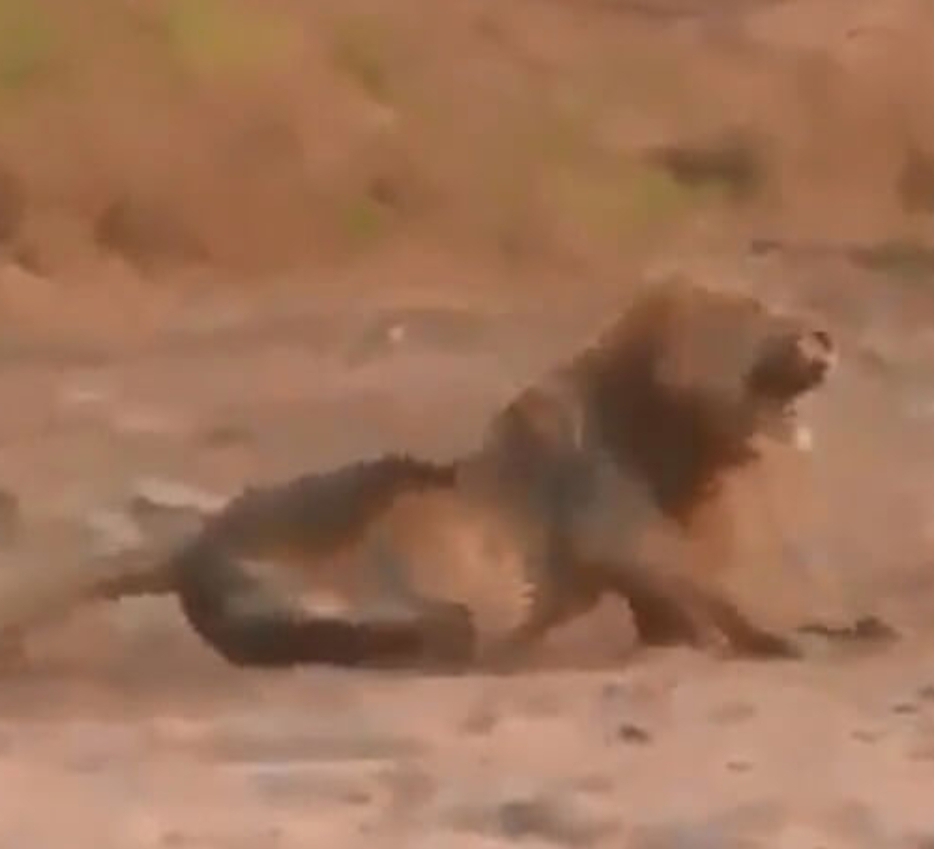
The video clip of 64-year-old Gorney from Manhattan, Illinois shows him proudly killing a sleeping lion under the coach of a guide.
In the clip, Gorney fires a shot at the slumbering lion, which awakens it. As the lion rolls in agony, a second and third shot are then fired before the guide tells Gorney to stop.
The guide then congratulates Gorney multiple times verbally, with handshakes, and pats on the back for such an “exceptional” trophy lion.

A UK animal rights advocacy shared the video on social media, and it spawned a viral response by those objecting to trophy hunting and animal killings in general.
The outrage isn’t likely to make Gorney rethink, much less apologize, though.
Gorney appears quite proud of his behavior. His Facebook profile page shows him straddled a dead lion in the same clothes he wore in the video.
Other photos of big game kills are also clearly visible. In a 2015 CBS interview, Gorney said he’d killed over 70 big game animals like zebra, rhino, elephant, buffalo, and various cats.
Why would someone want to do this?
According to Gorney at a 2018 open mic night at Book and Bean Cafe, he justifies his actions as preserving wild animal populations by killing animals that had previously harmed a human.
He addressed the “why” as the same adventure Teddy Rosevelt sought.
He used his elephant kills as an example, claiming that he had to walk over 120 miles tracking down the “dangerous” creature before he could make his first elephant kill
In the CBS interview, Gorney rationalized why he likely would continue killing animals at his own discretion.
He compared his kills to pictures of others with deer kills. He said no one would care if his pictures were of deer instead of large kills.
“Over the top” people are why he sees no reason to change his own behavior. Lion or deer, Gorney feels stoping a beating heart is stoping a beating heart.
National Geographic has predicted that the lion will disappear from the African continent by 2050.
With a 41% population decrease over just two decades, The African Wildlife Foundation lists the lion’s conservation status as vulnerable.




